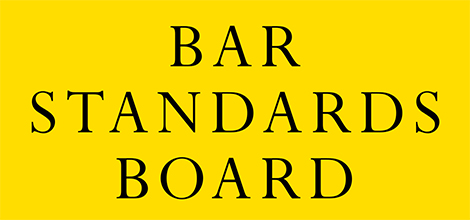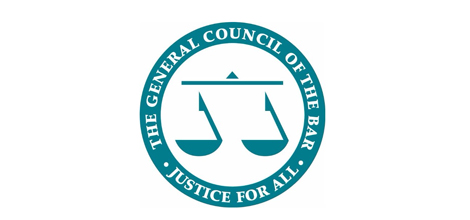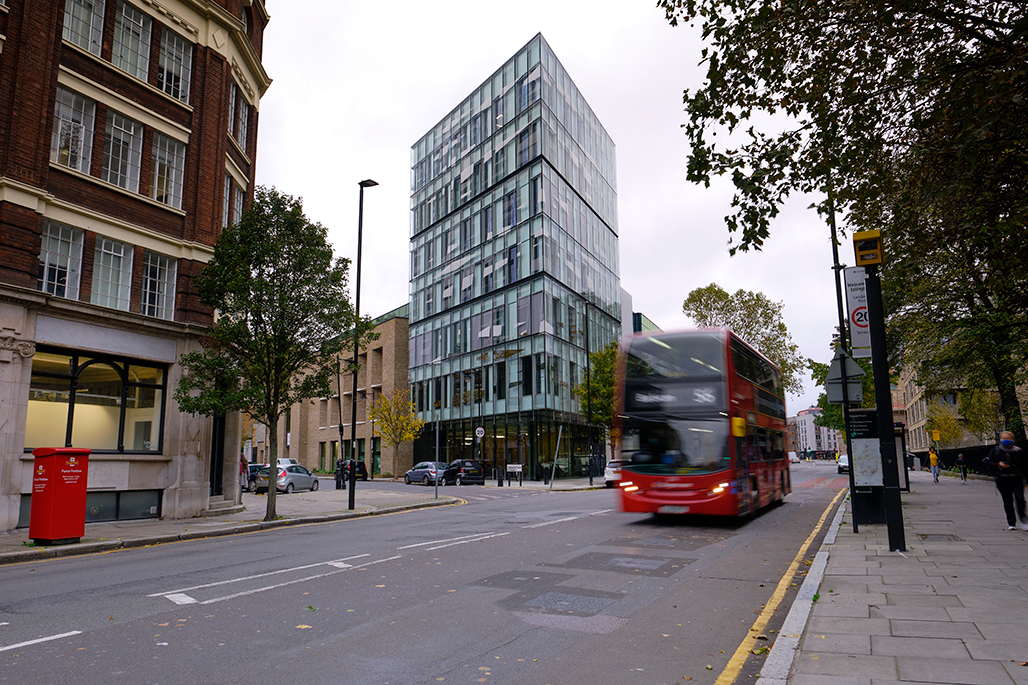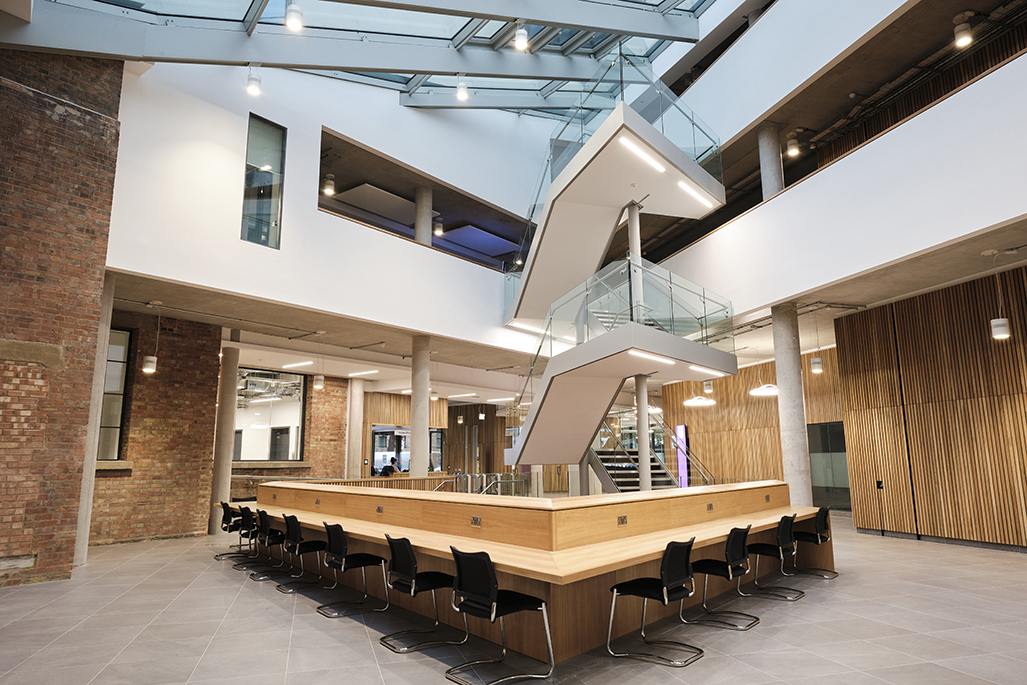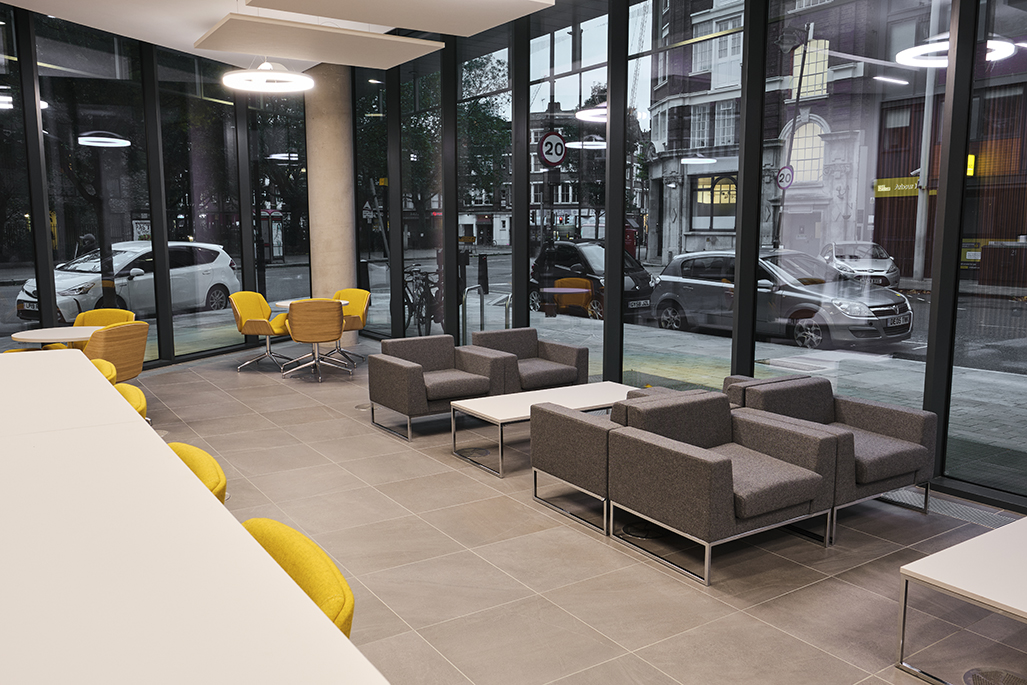Law LLB (Hons) degree Course overview
This degree provides the first stage of professional training for aspiring barristers and solicitors, laying the foundations for a rewarding legal career.
It is also suitable for anyone who wants to develop in-demand transferable skills such as critical thinking, commercial awareness, reasoning and research.
You will be trained to deal with challenging situations, excel under pressure, and demonstrate professionalism in your work environment.
- Access 250,000 books and 25,000 online journals with City’s library service, including our dedicated Law Library
- Choose to specialise in Commercial Law, International Law, Human Rights and Law with Professional Practice
- Develop your commercial awareness and professional network with an intensive five-week micro-placement.
- Practise your skills with our popular Pro Bono Unit, which provides legal advice to real clients
- Volunteer for the Start Ed Commercial Law Clinic - a free walk-in centre offering assistance for small businesses and start-ups
- Attend a court to observe hearings, or join a Community Legal Advice Centre session where you can observe lawyers providing legal advice
- Master important legal skills, such as research and analysis, public speaking and argument with regular mooting.
Get quick and easy access to the latest research materials and legislative updates with Lawbore, our acclaimed legal resource portal.
Accreditations
This course is accredited by:
- Bar Standards Board
- The General Council of the Bar.
Structure
Course content
This three-year LLB Honours degree covers all of the core modules required in UK legal education.
Bachelor of Laws (LLB) with Pathways
In addition to the LLB Law degree we provide the opportunity for you to graduate with a degree in a specialised area of Law.
All students that enter our LLB Law route can apply to specialise in one of the 4 pathways below, or continue with their general LLB Law degree. You can make this choice at the end of your 2nd year.
If you enter a specialised pathway you will need to study at least 4 15-credit modules related to this pathway in your final year.
The additional pathways and respective degree titles are:
- LLB Law with Commercial Law
- LLB Law with International Law
- LLB Law with Human Rights
- LLB Law with Professional Practice.
Modules available may be subject to amendment.
Year 1
Begin studying the core legal subjects common to all undergraduate law degrees, to lay a firm foundation for specialisation later in the course.
-
Debates in the English Legal System (15 credits)
This module will introduce you to key aspects of the constantly-evolving English legal system and will equip you with fundamental knowledge you can use across all your other modules on the LLB.
-
Constitutional Law (15 credits)
This module considers the essential elements of Constitutional Law in the United Kingdom; learn about the main institutions of government and analyse the way in which power is allocated and regulated.
-
Foundations of Contract Law (15 credits)
Gain knowledge and understanding of one of the most important legal topics and one designated by the Law Society and the Bar Council as one of the Foundations of Legal Knowledge.
-
Foundations of Criminal Law (15 credits)
Explore the general principles applicable to most crimes and then you will progress to analyse the elements of the specific named criminal offences of murder and manslaughter.
-
Foundations of Tort Law (15 credits)
This module aims to provide you with an introduction to tort law, focusing upon the most important tort: negligence.
-
Contract Law and Practice (15 credits)
This module will provide you with knowledge and understanding of the application of Contract Law in practice and build on the legal knowledge and skills that you acquired in the Foundations of Contract Law module.
-
Administrative law and Human Rights (15 credits)
This module explores the operation of judicial review in the UK Constitution, forms of administrative justice, including the working tribunals, ombudsmen and public inquiries, and human rights.
-
Studying Law and Employability (15 credits)
This module gives you the opportunity to see how important writing and research are in a practice context. So, for example, thinking about public law or the laws of contract or tort, a lawyer might be required to explain difficult legal concepts by drafting advice to a client. Alternatively, a lawyer might need to draft a watertight contract to protect the interests of the client. Accurate and concise writing is also critical in every graduate role.
Year 2
Study the remaining core legal subjects common to all undergraduate law degrees: Foundations of EU Law; Foundations of Land Law; Foundations of Trust Law.
Also choose five modules from a wide range of elective subjects to study in a specialised field. Please note the list of available electives is subject to change due to lecturer availability and student numbers.
-
Foundations of EU Law - Core module (15 credits)
Core module. Learn the legal rules of the internal market (free movement of goods and persons) and how the EU has been developed into a political union with policies extending beyond economic cooperation covering fields.
-
Foundations of Land Law - Core module (15 credits)
Core module. This is a compulsory module of the LLB Programme. This module introduces you to the general underpinnings of land law through examination of its foundational building blocks.
-
Foundations of Trusts Law - Core module (15 credits)
Core module. This module aims to enable you to obtain a coherent knowledge and systematic understanding of how Equity, through the use of its main mechanism of trust, complements common law.
-
Legal Career Enhancement and Employability Skills (15 credits)
This module introduces you to a series of competencies that will enhance your career readiness and raise your awareness of the diversity of careers following a degree in law and related fields.
-
Small Venture and Social Enterprise Law (15 credits)
In this module you will explore and examine legal practice as it relates to small to medium size enterprises (SMEs), charities and social enterprises in particular.
-
Commercial Awareness and Risk (15 credits)
Develop your ability to identify legal risks within a commercial/financial transaction and learn techniques and methods that aim to minimise those risks while taking into account the business pressures and commercial realities.
-
Mediation (15 credits)
This module places mediation within its context in modern litigation. You will learn what constitutes good practice in mediation.
-
Politics & Law (15 credits)
This module explores the inevitable and intricate relationship between politics and law. It focuses on the broader social, cultural and political context of how law is created, interpreted and applied.
-
Legal Design (15 credits)
Learn to understand the challenges people face and use design-thinking tools and techniques to design and plan a solution; making the law more user-friendly.
-
Legal Ethics and Professional Responsibility (15 credits)
This module provides an overview and critical perspective on legal ethics, professional conduct and professional regulation, and provides a foundation for understanding the role of lawyers in society and contemporary legal practice.
-
Further Issues in Criminal Law (15 credits)
You will build on your base knowledge by examining the areas of sexual offences, other non-fatal offences against the person, and property offences.
-
Further Issues in Tort Law (15 credits)
understanding of tort law as a whole. Recommended if you are considering becoming a solicitor or barrister.
-
The UK and The European Union (15 credits)
This module analyses the relationship between the EU and the UK, with a view to understanding the position of the UK in EU law and the place of EU law in the UK.
-
Company Law (15 credits)
The module includes a doctrinal overview of key elements in company law and their application, as well as discussion of critical legal perspectives that reflect on the evolving role of companies in modern economies, in light of global economic, environmental and social challenges.
-
Family Law (15 credits)
Gain an understanding of the core legal principles and policy considerations governing family law in England and Wales.
-
Foundations of Public International Law (15 credits)
The purpose of this module is to introduce you to public international law by providing a critical overview of selected aspects, rules and principles of the international legal system.
-
Immigration Law (15 credits)
In this module you will study the law that regulates the field of immigration and asylum policy, seeking to understand how far both human rights and the public interest are properly protected.
-
Intellectual Property Law (15 credits)
This module introduces students to patent law, copyright law, trademark law, and the international context of IP law.
-
Introduction to Islamic Law (15 credits)
This module provides you with an insight into various aspects of Islamic Law. You will focus on Family Law, Contract Law and Criminal Law, as well as the sources of Islamic Law.
-
Law relating to Domestic Banking (15 credits)
The module covers key implied terms of the banker-customer relationship including confidentiality, interest, repayment (on demand) and set off and where statute has impacted upon that relationship.
-
Law, Rights and Context (15 credits)
Explore and think critically about the role and value of law and rights and their response (or lack thereof) to a variety of global and local changes and challenges.
-
Regulation of Leisure Industries (15 credits)
Obtain a coherent knowledge and a systematic understanding of the theoretical and practical issues that surround the regulation of the controversial gambling and alcohol industries.
-
Contemporary issues in EU Constitutional law (15 credits)
This course aims to provide students with a thorough knowledge of the European Union’s Constitutional legal order. The aim is to examine the constitutional nature of the Union and its claims to accountability, legitimacy and democracy.
-
Micro-Placement (15 credits)
The module seeks to enhance career exploration and will provide you with professional level experience in the form of a self-contained project with one of City’s external employer partners.
Year 3
Specialise in your chosen area of the law with eight elective modules from a wide range of subjects. Develop important professional skills for your future career. Please note the list of available electives is subject to change due to lecturer availability and student numbers.
-
Further Issues in Equity (15 credits)
Build upon your knowledge and skills acquired during your studies for the Foundations of Trusts module and focus on detailed aspects of Equity.
-
Further Issues in Land law (15 credits)
An introduction to the ways in which land law regulates relations and activities between landowners and others. This topic includes easements and freehold covenants.
-
Law of the European Convention of Human Rights (15 credits)
In addition to providing specific legal expertise, the module allows you to form your own views on political issues such as the opposition in certain quarters to Britain’s continued participation in the European Convention on Human Rights.
-
EU Law and the Global Legal Order (15 credits)
This module analyses the relationship between the internal EU legal order and the global legal order, with a view to understanding the constitutional foundations of the EU’s place in the global legal order.
-
Human Rights Law in the UK (15 credits)
This module facilitates the understanding of the reach and limitations of human rights law, as well as providing cross-subject expertise necessary in every area of legal practice.
-
International Human Rights Law (15 credits)
This module offers an introduction to international human rights law in a legal and political context. It provides an overview of various international human rights standards and of the international and regional mechanisms that work to implement them.
-
Cross Border Commercial Law (15 credits)
The module will examine how commercial legal concepts are described and applied in specific areas of commercial transactions.
-
Global Issues in Corporate Law (15 credits)
This module explores selected key topics in corporate law that arise from the significant role of large companies as international actors in global markets. The module provides an overview of the economic and institutional dynamics that influence the use and control of decision-making power in large (typically, publicly traded) companies.
-
International Banking Law (15 credits)
The aims of this module are to provide you with an in-depth knowledge and understanding of many of the important transactions in International banking law, learn some of the major clauses used in International Banking Law, and the litigation (case law) connected with or minimised by entering into such transactions.
-
Media Law (15 credits)
This module offers you the opportunity to gain in-depth knowledge and understanding of a specialised area of legal study, media law.
-
Competition Law (15 credits)
You will get to see much in this module of how businesses think in their commercial planning, and of how different modules in the degree programme fit together.
-
Maritime Law (15 credits)
Develop knowledge, skills and understanding in the field of maritime law, such as; jurisdiction and security powers of courts, limitation of liability, oil pollution from ships, shipbuilding and ship sale and more.
-
Advanced Issues in International Law (15 credits)
This module focuses on a number of important issues that arise in the context of public international law. It allows you to develop a deep and critical understanding of the selected aspects, rules and principles of the international legal system, while also appreciating their complex relationship with the realities of international politics.
-
International Economic Law (15 credits)
Discuss key legal themes and issues in International Economic Law, which is the public and private international law governing the relations between states and companies with respect to economic issues.
-
International Criminal Law (15 credits)
An exploration of International Criminal Law and a focus on its main institutions, especially the International Criminal Court, and the core international crimes, especially genocide, crimes against humanity and war crimes.
-
International Commercial Arbitration (15 credits)
A detailed understanding of the practice and normative framework of International Commercial Arbitration (ICA) and its roots in national and international law as well as in international business customs
-
Discrimination Law (15 credits)
The aim of this module is for you to gain a coherent and detailed knowledge of discrimination law and the Equality Act 2010, which is a specialised area with a particular emphasis of discrimination within the workplace.
-
Labour Law (15 credits)
Through reading and writing an essay you will develop your understanding of some of the theoretical debates in this area. You will also learn how to solve topical Employment Law problems.
-
Criminal Justice (15 credits)
This module focuses on the process through which those who are alleged to have committed a criminal offence are dealt with.
-
Medical Law and Bioethics (15 credits)
-
Forensic Science and the Legal Process (15 credits)
An introduction to some of the issues raised by science in the courtroom, with focus on the relationship between law and science, the approach of the law to expert and scientific evidence.
-
Law of Evidence - The Evidential Implications of Criminal Investigation (15 credits)
This module should provide you with an in-depth knowledge and understanding of the evidential implications of criminal investigation. It will appeal most to those who are interested in how we regulate the means by which facts may be proved in courts of law.
-
Law of Evidence: Safeguarding Reliability and Protecting Witnesses (15 credits)
This module should provide you with an in-depth knowledge and understanding of principles of the law of evidence that are concerned with ensuring the reliability of evidence and protecting witnesses.
-
Legal Skills (15 credits)
This module aims to introduce you to the key skills of: writing; drafting; client interviewing; advocacy and presentation; negotiation; and client interviewing and also important considerations imposed by a lawyers’ professional ethics.
-
Introduction to the Solicitor’s Professional Qualification (15 credits)
This module will provide you with a foundation of practice-based knowledge and understanding required as part of preparing for the Solicitors Qualifying Examination (SQE), Part 1.
-
Canadian Constitutional Law – Foundational Principles (15 credits)
This module explores some of the major issues in Canadian Constitutional Law. The module addresses the creation of Canada as a nation in 1867, examines the terms of the original constitutional settlement and analyses the radical changes made to the constitution in 1982.
-
The Canadian Charter of Rights and Fundamental Freedoms (15 credits)
In this module you will explore Canada’s 1982 Charter of Fundamental Rights and Freedoms. You will study several thematic issues arising from the Charter; notably the questions of proportionality review, the separation of powers between the courts and the legislatures and the nature of the public/private divide in terms of the Charter’s impact on the common law.
-
Canadian Law of Business Organisations (15 credits)
The aim of this module is to provide you with a sound understanding of the key concepts underlying the operation of corporate law in Canada.
-
Constitutional Law of the USA – Foundational Principles (15 credits)
This is a very interesting module for anybody interested in politics, history and jurisprudence and who enjoyed lectures in Public Law in year 1. This class is used to indulge interests in American history, and the role of the US Supreme Court in making and shaping that history.
-
Constitutional Law of the USA – Modern Controversies (15 credits)
This module is a continuation of the narrative begun in Constitutional Law of the USA – Foundational Principles. Like that class, this module is used to indulge interests in American history, and the role of the US Supreme Court in making and shaping that history.
-
Child Law (15 credits)
This module provides you with a thorough understanding of the core legal principles and policy considerations governing child law in England and Wales - as they emerge from the relevant statutes and case-law - to offer an insight into the debates arising under child law and to consider proposals for legislative reform.
-
Justice Law and History (15 credits)
This module examines significant events or eras in legal history. It has three central aims. Firstly, to give you an understanding of various important events, or developments, in legal history. Secondly, to encourage you to adopt critical approaches to the law. Thirdly, to encourage you to see contemporary issues in a historical context.
-
Micro-Placement (15 credits)
The module seeks to enhance career exploration and will provide you with professional level experience in the form of a self-contained project with one of City’s external employer partners.
-
Comparative Constitutional Law (15 credits)
This module involves comparative exploration of constitutions across the world. We will take a thematic approach to the subject, looking in detail at the way in which fundamental constitutional structures, institutions and principles are provided and catered for across the world.
-
International and Comparative Intellectual Property Law
This module will provide you with a thorough grounding and critical appreciation of the relationship between international, regional and national IP law and allied rights in key jurisdictions.
-
Law, Race and Colonialism (15 credits)
The aim of this module is to examine the complex relationships between colonialism, race and law. Based on the premise that law is central to the constitution of social life, political meaning, cultural and economic relations, the module will explore the role law has played in producing histories of violence and present situations of social inequality.
-
Dissertation (30 credits)
This is a piece of independent research, drawing from the knowledge gained from the Law programme and elsewhere. You will receive guidance from your supervisor.
-
Movement of Products and People into and within the EU (15 credits)
This module covers some of the legal principles and rules adopted by the European Union institutions to achieve the internal market, secure labour migration, and set regulatory standards to protect consumers and other interests in that market.
-
Industry Projects (15 credits)
You will find this pathway of interest if you wish to focus on the preparation for professional legal practice. You have the opportunity to examine procedural and evidence law in some detail – matters of which are important to the professional practice of law.
-
Pro-Bono (15 credits)
Using knowledge and skills gained through your degree, you will work in small groups on real-life professional level commercial projects for employers within the legal sector.
-
Mentoring and Coaching for Leadership (15 credits)
The module is based around practical activities in parallel with conceptual development so that students will build a framework for understanding mentoring and coaching processes, while at the same time gaining experience and relating this to the practical issues
-
Commercial Sales Law (15 credits)
In this module, you will learn about the rights and obligations of buyers and sellers, acting as businesses and consumers, in transactions involving the sale and supply of goods, services and digital content.
-
Legal Technology and Project (15 credits)
In addition to gaining this general understanding of the role of technology in legal practice, you will complete an industry focussed project with a small group of peers. This project will enable you to explore the use of legal technology in the workplace.
Download course specification:
Study abroad
The School has established student exchange programmes with universities in Australia, France, Italy, the Netherlands, Singapore, Spain and Turkey. The programme may provide the opportunity to spend part of your second year or all or part of your third year studying at one of these universities.
We have strong links with universities such as:
- University of Queensland, Australia (Brisbane)
- Singapore Management University, (Singapore)
- Sciences Po, France (Paris)
- Bocconi, Italy (Milan)
- Koc University, Turkey (Istanbul)
These partnerships and their programmes may be subject to change.
Teaching and assessment
Lectures, seminars and tutorials are the main teaching methods on the LLB course.
- Alongside your fellow students, you will learn about fundamental rules of law and their application in a variety of contexts in lectures.
- Seminars will enable you to engage with and discuss assigned materials in a less formal setting.
- Regular tutorials will allow you to meet with your subject tutor as part of a small group to analyse problem scenarios and to explore in depth a variety of legal issues.
- All face to face classes will be fortified by materials and learning packages on our virtual learning platform, Moodle
You will be encouraged to take part in activities such as debating, national and international mooting (a legal debate) and volunteering. Combined with your legal studies these activities help you to develop a broad range of skills and build your self-confidence.
Some modules will provide you with the opportunity to develop employability skills – you will have the opportunity to develop your abilities in interviewing, mediation, in house legal practice and client handling.
City's Library is one of the best stocked libraries in the country. Our printed collections consist of around 250,000 books with over 25,000 online journal titles and over 1,600 study places available in our libraries.
The City Law School and Law Library are located at Sebastian Street. The Law Library offers state of the art learning resources, from the UK and worldwide. You can access our online materials and learning resources held by the library either on site or remotely, thus enabling flexible learning.
As a law student, you will be provided with appropriate training to use our extensive collections at the start of your course.
Extra-curricular activities
At The City Law School we offer a range of opportunities to grow your legal potential outside of the course.
Mooting is a key part of life at The City Law School and we believe it is one of the most effective ways for you to develop the competencies you need to be a successful lawyer. Mooting helps you to master important legal skills, such as research and analysis, whilst also gaining experience of public speaking and argument.
We offer opportunities to provide legal advice to real clients in a range of areas of law, organised by our popular Pro Bono Unit. We have currently a number of partnership programmes at local, national and international level, including the Schools Consent Project and Action Against Medical Accidents (AvMA).
You may be able to volunteer for the Start Ed Commercial Law Clinic - a free walk-in centre offering assistance for small businesses and technology start-ups. Alternatively you could become involved with the School’s Free Representation Unit, which represents clients with no means of funding their own legal representation in tribunals.
We appreciate the importance of work-based learning. We offer you a chance to shadow an employer, under our micro-placement scheme to help you gain invaluable insights into the world of professional work.
You will be assigned a personal tutor when you start who will guide and advise you as to your career and learning options. Your personal tutor will also be able to assist with any welfare and wellbeing issues you might encounter during your time at The City Law School.
Assessment methods
Law students are assessed by a variety of methods. Those include written coursework, mooting, portfolios, multiple choice questions tests, oral and written examinations, as well as project work and activities undertaken as part of a team.
Formative assessment and mock examinations and feedback are given throughout the academic year to help you prepare for your assessments.
We recognise the importance of prompt and helpful feedback to you. Academic staff highlight the learning outcomes at the start of each module, ensure that core skills are developed and refined as part of the course and provide students with effective feedback on individual and group assignments.
Percentage of the course assessed by coursework
The balance of assessment by examination, practical examination and assessment by coursework will to some extent depend on the optional modules you choose. The approximate percentage of the course assessment, based on 2023/24 entry is as follows:
Assessment
Year 1
Year 2
Year 3
Overall workload
You will be expected to prepare in advance for both lectures and tutorials by undertaking directed reading of textbooks, legal cases, academic articles and other materials.
Lectures and seminars normally last for two hours and tutorials last for one hour. During the programme you will have on average 10 contact hours per week with a minimum of 60 hours of directed reading.
Approximate study time, based on 2023/24 entry is as follows:
Workload
Year 1
Year 2
Year 3
Fees and funding
Fees for year 2024/25
Home/UK
£9,250
International
£18,140
The tuition fees indicated are for the 2024/25 academic year only. Fees for future years may be subject to an inflationary increase in the region of 5%.
Funding options
- Means tested support is available for 2024/5 entry.
Additional expenses
Some of our degrees may involve additional expenses which are not covered by your tuition fees. Find out more about additional expenses.
Career
This LLB (Hons) qualifies you to progress directly to the professional stage of your legal training – the Solicitors’ Practice Programme (SPP) for solicitors and Bar Vocational Studies (BVS) for barristers.
As a graduate you might also work for:
- providers of legal services
- regulatory agencies
- non-governmental bodies and international NGOs
- the Law Commission
- the Civil Service.
The skills acquired during the course of your study will also open doors to a variety of other, non-law specific careers. Graduates often successfully apply for places on general graduate training programmes with property firms, investment banks, consultancy firms and within the retail sector.
Some of the organisations where our graduates have found employment are:
- Capital Solicitors
- Standard Chartered Bank
- HSBC
- Amnesty International
- Nationwide Law Associates.
Our Careers & Employability team provides a professional, high-quality careers and information service for students and recent graduates of City.
Our Job prospects and graduate destinations page also publishes some snapshot statistics on what City graduates are doing fifteen months after the completion of various courses.
How to apply
Applications for degree courses must be made through the Universities and Colleges Admissions Service (UCAS).
You can apply through your school or college using the Apply system, which enables you to submit your application directly to the UCAS website.
You can apply to up to five universities or institutions on the form. The UCAS code for City, University of London is C60.
Please take care to enter the correct course code when applying, particularly for subjects with a Foundation year or with BEng (Hons) and MEng (Hons) or BSc (Hons) and MSci (Hons) options.
UCAS has implemented an 'invisibility of choices' policy so that, on the initial application and while you are receiving decisions, each institution can see only their entry and not those of other institutions you have chosen. This ensures that your application for a course at City is considered solely on your academic and personal qualities.
You should submit your completed application form to UCAS with a £26.50 application fee. If you want to apply to City, University of London only, you can make a single choice application at a reduced rate of £22.
For enquiries about the admissions process at City, please contact our Admissions Office
Complete the Admissions enquiry form
Call: +44 (0)20 7040 8716.
If your enquiry is about admission to a particular course, please use the contact details provided on the course page.
When to apply
Your application for entry in September 2024 should arrive at UCAS between September 2023 and 25th January 2024. Applications that arrive after 25th January 2024 will be considered only at City's discretion.
Contacting UCAS
Website: www.ucas.com
Address: Universities and Colleges Admissions Service (UCAS), Rosehill, New Barn Lane, Cheltenham, Gloucestershire, GL52 3LZ
Telephone:
- from inside the UK 0871 468 0468
- from outside the UK +44 (0)871 468 0468
For callers with hearing difficulties:
- from inside the UK use the Text Relay service on 18001 0871 468 0468
- from outside the UK dial +44 151 494 1260 (text phone) and then ask the operator to dial 0871 468 0468.
Our students
Find out from our students what their experience of studying our LLB law degree course was like.
Ask a student
Want to find out more about student life? Chat with our student ambassadors and ask any question you have
